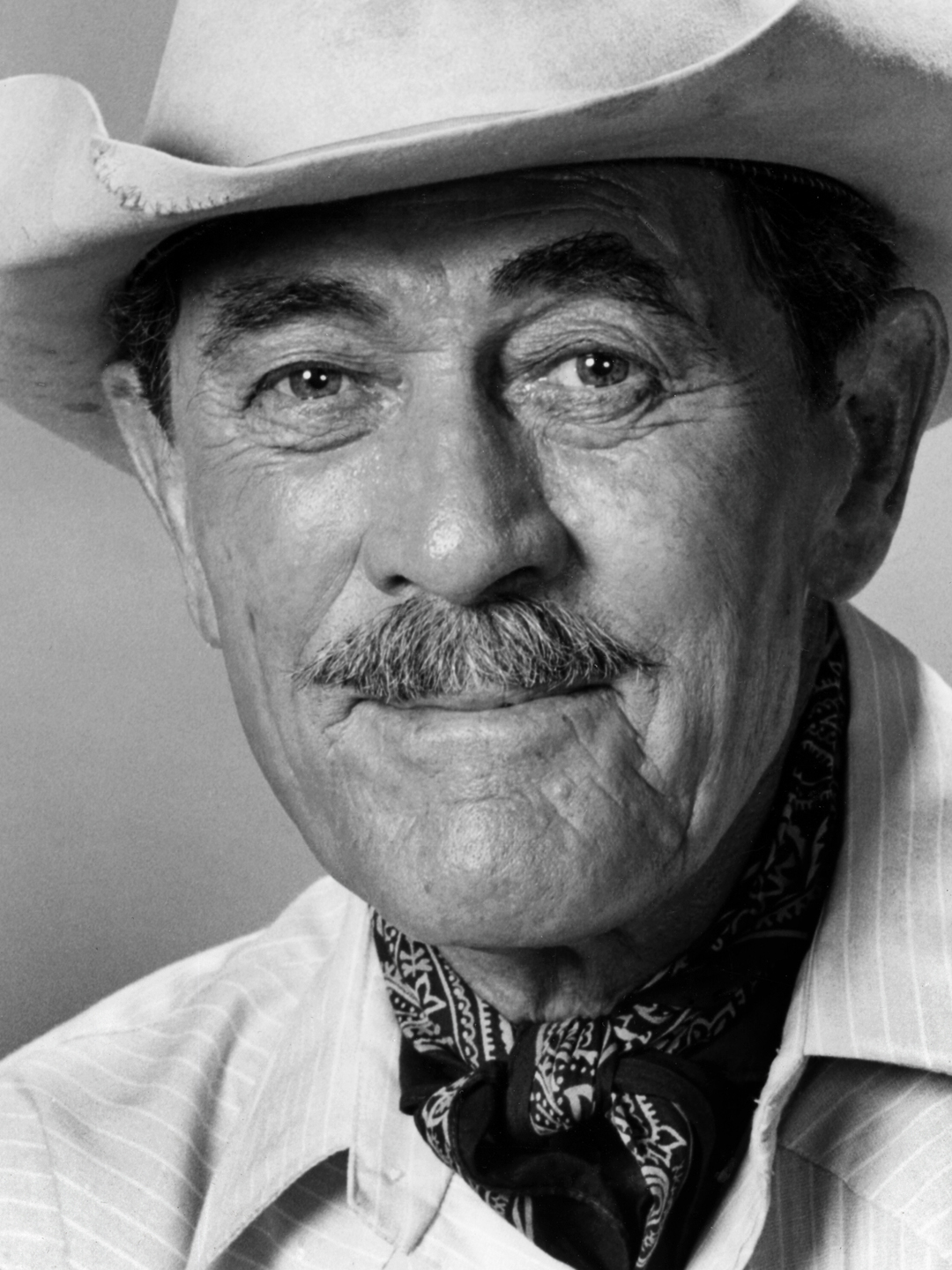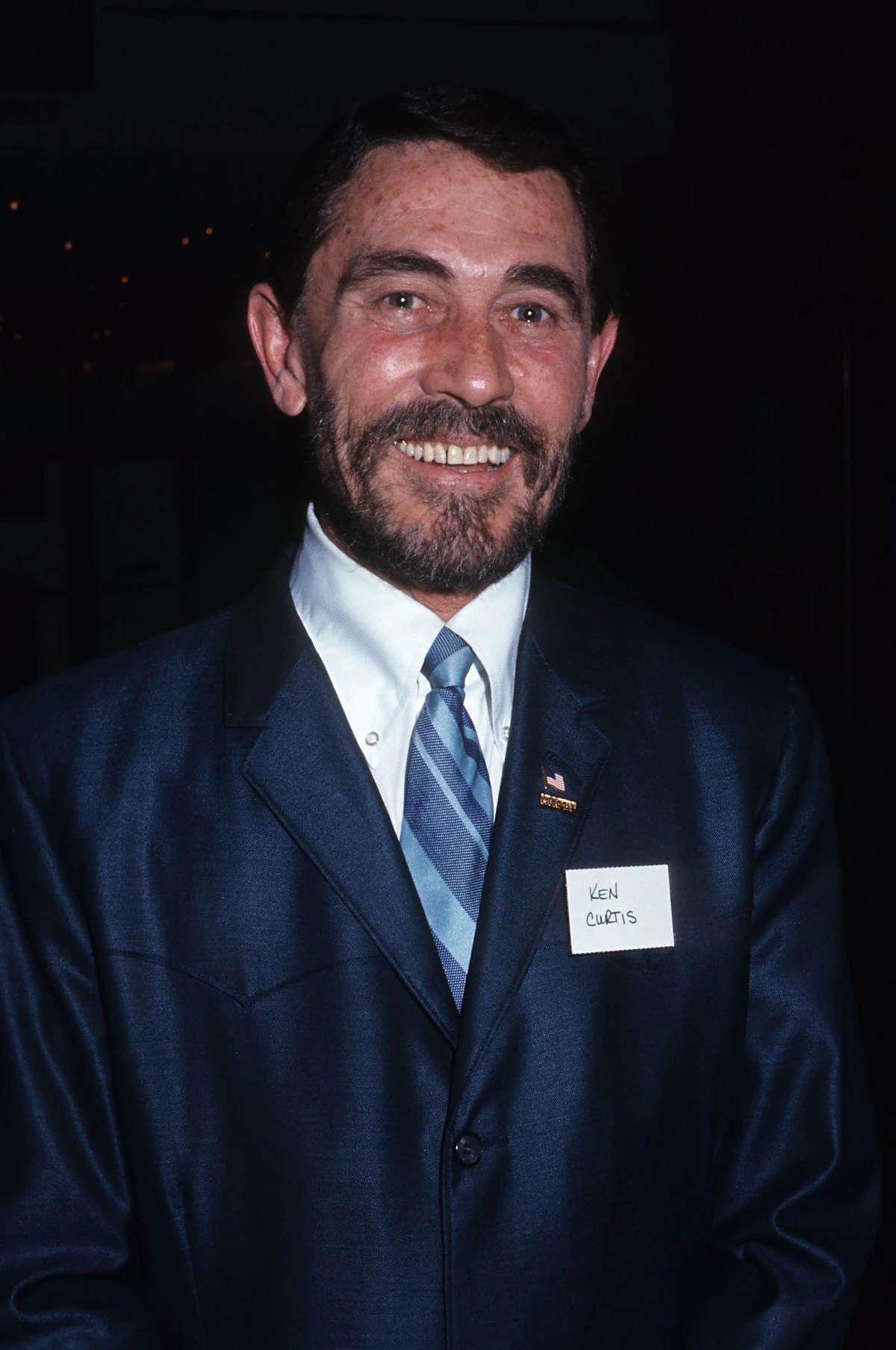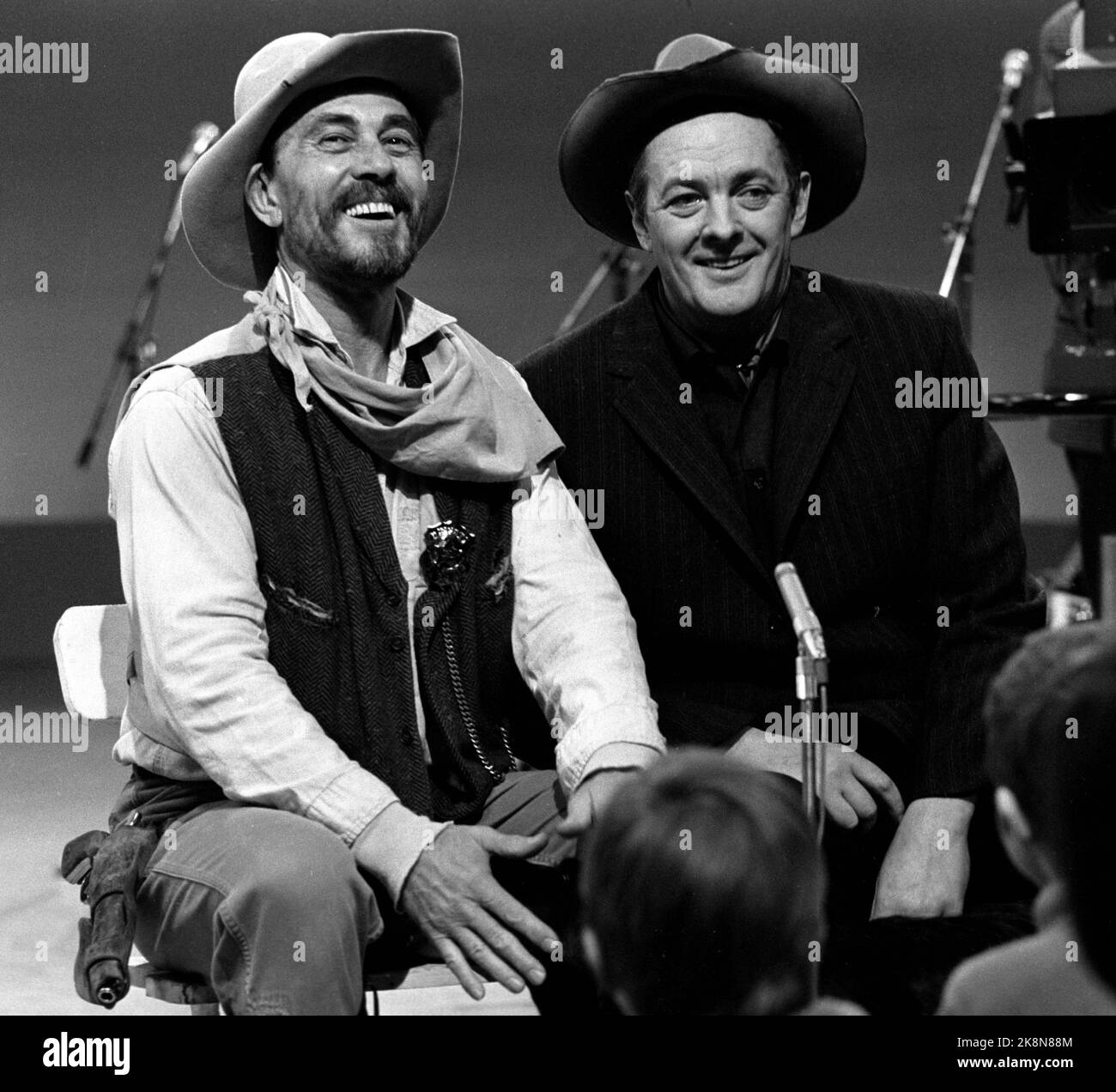Ken Curtis: Beyond Festus Haggen – A Life In Westerns
In the vast, dusty plains of classic American television, few characters left as indelible a mark as Festus Haggen from the legendary series *Gunsmoke*. Portrayed with a distinctive drawl, a keen wit, and an unwavering moral compass, Festus became a household name, synonymous with the rugged charm of the Old West. Yet, behind the grime and the homespun philosophy of Festus was a man of remarkable talent and versatility: Ken Curtis. This article delves deep into the life and career of Ken Curtis, exploring his journey from a promising singer to one of television's most beloved character actors, and examining the enduring legacy he left on the landscape of American entertainment.
Born in the quiet town of Lamar, Colorado, Ken Curtis embarked on a path that would see him grace both the silver screen and the television set, often alongside some of Hollywood's biggest legends. While Festus Haggen remains his most iconic role, Curtis's career was far richer and more varied than many might realize, encompassing singing, early film roles, and significant collaborations with cinematic giants. His story is a testament to perseverance, adaptability, and the power of a truly memorable performance.
Table of Contents
- Introduction to a Western Icon
- The Early Life and Roots of Ken Curtis (Biography)
- From Singing Cowboy to Character Actor: The Versatile Beginnings
- Festus Haggen: Ken Curtis's Enduring Legacy on Gunsmoke
- A Duke's Dozen: Ken Curtis's Collaborations with John Wayne
- The Financial Side of Stardom: Ken Curtis's Earnings
- Collecting a Legend: Ken Curtis Autographs and Memorabilia
- A Quiet Farewell: Ken Curtis's Final Years and Lasting Impact
Introduction to a Western Icon
For millions of viewers across generations, the face of the American West was often defined by the characters of *Gunsmoke*. Among them, Festus Haggen, with his distinctive voice, unkempt appearance, and often comical yet deeply moral outlook, carved out a special place in the hearts of fans. It was the remarkable talent of Ken Curtis that brought this character to life, transforming what could have been a mere sidekick into an indispensable part of the show's enduring appeal. While Festus might be his most recognizable contribution, Ken Curtis's career spanned decades, showcasing a versatility that extended far beyond the dusty trails of Dodge City.
His journey into the entertainment world was not a straightforward one, marked by early forays into music and a gradual transition into acting. This article aims to illuminate the full scope of Ken Curtis's contributions, exploring his early life, his pivotal role in *Gunsmoke*, his significant work with cinematic giants like John Wayne, and the financial aspects of his career, providing a comprehensive look at the man behind the legendary Festus Haggen.
The Early Life and Roots of Ken Curtis (Biography)
Born Curtis Wain Gates on July 2, 1916, in Lamar, Colorado, Ken Curtis's roots were deeply embedded in the very landscape he would later portray on screen. His father, Dan Gates, was the sheriff of Bent County, providing young Curtis with an early, firsthand exposure to the realities of frontier justice and rural life, elements that would undoubtedly inform his later performances. Growing up in a small town in the American West, Curtis developed a strong work ethic and a down-to-earth demeanor that would characterize both his personal life and his acting roles.
Before he became a fixture on television, Curtis pursued his passion for music. He attended Colorado College, where he studied music, honing his vocal talents. This musical foundation would serve him well, leading to early career opportunities as a singer. His journey from a small Colorado town to the bright lights of Hollywood was a testament to his innate talent and determination, laying the groundwork for a career that would span over five decades.
Personal Data and Biodata: Ken Curtis
To provide a clear overview of his life, here is a summary of Ken Curtis's personal data:
| Attribute | Detail |
|---|---|
| Full Name | Curtis Wain Gates |
| Known As | Ken Curtis |
| Date of Birth | July 2, 1916 |
| Place of Birth | Lamar, Colorado, USA |
| Date of Death | April 28, 1991 |
| Place of Death | Fresno, California, USA |
| Cause of Death | In his sleep of natural causes |
| Notable Role | Festus Haggen on *Gunsmoke* |
| Occupation | Actor, Singer |
From Singing Cowboy to Character Actor: The Versatile Beginnings
Ken Curtis's entry into entertainment was primarily through music. His rich baritone voice quickly gained attention, leading him to join the popular big band, the Tommy Dorsey Orchestra, in 1941, where he replaced Frank Sinatra. This was a significant early achievement, showcasing his vocal prowess on a national stage. After his stint with Dorsey, he moved on to become a member of the legendary Sons of the Pioneers, a highly influential Western singing group. With the Sons of the Pioneers, Curtis further honed his craft, performing Western-themed songs that perfectly suited his voice and persona. This period cemented his image as a "singing cowboy," a popular archetype in the 1940s and 50s.
His musical career naturally transitioned into acting, particularly in Western films, where his singing abilities could be showcased alongside his developing acting skills. Early in his film career, Ken Curtis appeared in a variety of roles, often as a cowboy or a musical performer in B-Westerns. These early experiences provided him with invaluable on-set training and familiarized him with the rhythms and demands of film production. It was this diverse background, blending musical talent with an authentic Western sensibility, that prepared him for the iconic roles that lay ahead, most notably his long-running portrayal of Festus Haggen.
Festus Haggen: Ken Curtis's Enduring Legacy on Gunsmoke
While Ken Curtis had a respectable career before *Gunsmoke*, it was his role as Festus Haggen that would define his legacy and etch his image into the collective memory of television viewers. *Gunsmoke*, which ran for an astonishing 20 seasons from 1955 to 1975, was a cornerstone of American television, depicting the lives of Marshal Matt Dillon and the citizens of Dodge City. Festus, with his distinctive mannerisms and often hilarious interactions, became an indispensable part of this beloved Western saga.
The Arrival of Festus: A Pivotal Shift
Before settling into the role of Festus, Ken Curtis had already made several guest appearances on *Gunsmoke*, portraying no less than five different characters. This versatility allowed the show's producers to see his range and potential. His first appearance as a recurring character, and indeed his first official appearance on the show, was in the episode titled "Doc's Revenge," which aired as the 13th episode of Season 8. This episode marked a significant turning point for the series. Festus Haggen was introduced as the second official deputy, effectively replacing the character of Chester, played by Dennis Weaver, who had decided to leave the show.
The transition from Chester to Festus was handled seamlessly, largely due to Curtis's ability to create a character that was both unique and perfectly suited to the *Gunsmoke* universe. Festus quickly became a fan favorite, providing a new dynamic to the core cast and ensuring the show's continued success in the absence of a beloved character. His arrival revitalized the series, proving that the show's strength lay not just in its lead, but in its rich ensemble.
The Character of Festus: More Than Just a Sidekick
Festus Haggen was far from a conventional deputy. He was a rough and tumble man, often unkempt, with a distinctive, nasal drawl that became instantly recognizable. His humor was often unintentional, stemming from his rural wisdom and straightforward approach to life. Yet, beneath the gruff exterior and the sometimes-comical antics, Festus possessed a strong moral compass. He was fiercely loyal to Marshal Dillon, unwavering in his commitment to justice, and deeply empathetic to the plight of the common folk.
Ken Curtis imbued Festus with a humanity that resonated deeply with audiences. He wasn't just a comedic foil; he was a character with depth, capable of showing courage, compassion, and vulnerability. His interactions with other characters, particularly with Matt Dillon, Doc Adams, and Kitty Russell, provided much of the show's heart and humor. Festus's popularity was a testament to Curtis's acting ability, transforming what could have been a stereotype into a fully realized, beloved individual who became synonymous with the very essence of *Gunsmoke*.
A Duke's Dozen: Ken Curtis's Collaborations with John Wayne
Beyond his television fame, Ken Curtis also had a notable presence on the big screen, particularly through his collaborations with one of Hollywood's most iconic figures: John Wayne. Curtis appeared in seven John Wayne movies, a significant number that speaks volumes about his talent and the trust placed in him by "The Duke" and his frequent director, John Ford. These roles, though often supporting, allowed Ken Curtis to showcase his range and contribute to some of the most enduring Westerns ever made.
Memorable Roles in Iconic Westerns
The seven John Wayne films in which Ken Curtis appeared are a testament to his enduring appeal in the Western genre:
- ***Rio Grande*** (1950): This film was one of John Ford's "cavalry trilogy" and featured Curtis in an early role, often singing.
- ***The Quiet Man*** (1952): A departure from Westerns, this beloved romantic comedy set in Ireland saw Curtis in a small but memorable part, again showcasing his singing.
- ***The Wings of Eagles*** (1957): A biographical film about Frank "Spig" Wead, where Curtis played a supporting character.
- ***The Searchers*** (1956): Considered by many to be one of the greatest Westerns of all time, Curtis played Charlie McCorry, a suitor of Debbie Edwards. His performance in this classic cemented his place in Western film history.
- ***The Horse Soldiers*** (1959): A Civil War Western, where Curtis played a Union corporal.
- ***The Alamo*** (1960): Wayne's epic portrayal of the Battle of the Alamo, with Curtis as Captain Almaron Dickinson.
- ***How the West Was Won*** (1962): An ambitious Cinerama epic, where Curtis had a role as a scout.
These collaborations with John Wayne and director John Ford provided Ken Curtis with invaluable experience and exposure, allowing him to work alongside and learn from some of the industry's titans. His ability to fit seamlessly into these grand narratives, whether as a singing soldier, a determined suitor, or a reliable scout, demonstrated his versatility and his deep understanding of the Western archetype. These film roles, alongside his *Gunsmoke* fame, solidified Ken Curtis's status as a true icon of the American Western.
The Financial Side of Stardom: Ken Curtis's Earnings
While the glamour of Hollywood often overshadows the practicalities, the financial aspect of an actor's career is a crucial component of their livelihood. For Ken Curtis, his long tenure on *Gunsmoke* provided a steady and respectable income, particularly for the era. In the early years of *Gunsmoke*, it is reported that Ken Curtis made around $1,000 per episode. While this figure might seem modest by today's standards for a lead actor on a hit show, it was a substantial sum in the 1960s.
To put this into perspective, $1,000 per episode in the early 1960s would be equivalent to approximately $8,000 to $10,000 in today's money, considering inflation. Given that *Gunsmoke* produced numerous episodes per season (often over 30 in its early years), this translated into a significant annual income. For instance, a 30-episode season would have earned Ken Curtis $30,000, which was a very comfortable living at the time, especially compared to the average household income. As the show became more established and its popularity soared, it is highly probable that his salary increased over time, reflecting his growing importance to the series and the overall success of *Gunsmoke*.
This financial stability allowed Ken Curtis to enjoy a comfortable life and provided him with the security to continue pursuing his passion for acting without the constant pressure of finding his next role. His earnings underscore the value placed on experienced and beloved character actors in the golden age of television, particularly those who, like Ken Curtis, became synonymous with a long-running and highly successful series.
Collecting a Legend: Ken Curtis Autographs and Memorabilia
The enduring popularity of *Gunsmoke* and the beloved character of Festus Haggen have ensured that Ken Curtis remains a figure of interest for collectors of Western memorabilia and Hollywood autographs. In the collector's market, there are a moderate number of autographs available for Ken Curtis. This suggests that while he was a prominent figure, he may not have signed as prolifically as some of his more high-profile co-stars or those who made more public appearances outside of filming.
The value of Ken Curtis's autographs and memorabilia can vary significantly based on several factors:
- Authenticity: As with all collectibles, proof of authenticity (e.g., from a reputable dealer or a certificate of authenticity) is paramount.
- Condition: The physical condition of the signed item (e.g., photograph, script, or personal letter) plays a major role in its value.
- Rarity: While a "moderate number" are available, certain unique items, such as signed personal letters or items related to specific episodes or films, might be rarer and thus more valuable.
- Association: Items signed with his character name "Festus" or those with a clear association to *Gunsmoke* or his John Wayne films often command higher prices due to their direct link to his most famous work.
For fans and collectors, owning a piece of Ken Curtis's legacy is a way to connect with the golden age of television Westerns and to honor the man who brought Festus Haggen to life. The continued interest in his autographs reflects the lasting impact he had on popular culture and the deep affection viewers still hold for his iconic portrayal.
A Quiet Farewell: Ken Curtis's Final Years and Lasting Impact
Ken Curtis continued to act well into his later years, remaining active in the entertainment industry. After *Gunsmoke* concluded its historic run in 1975, he made appearances in various television shows and films, often reprising his familiar Western persona or taking on roles that leveraged his established character actor appeal. He enjoyed a long and successful career, beloved by fans for his authentic portrayals and distinctive voice.
Ken Curtis passed away peacefully in his sleep of natural causes on April 28, 1991, at the age of 74, in Fresno, California, USA. His passing marked the end of an era for many who grew up watching him on screen. While there have been occasional questions or rumors about his personal life, it is important to note that there is no evidence to suggest that Ken Curtis was gay, and such speculation often arises without factual basis when discussing public figures. His focus remained on his craft and his contributions to the Western genre.
The legacy of Ken Curtis is firmly cemented in the annals of television history. He is remembered not just as Festus Haggen, but as a versatile performer who brought depth and authenticity to every role he undertook. His work in *Gunsmoke* provided a moral anchor and a source of humor for millions, while his appearances in John Wayne films showcased his range on the big screen. Ken Curtis embodied the spirit of the American West, leaving behind a body of work that continues to entertain and inspire new generations of fans. His contributions to film and television ensure that his memory, and the enduring appeal of Festus, will live on.
Conclusion
From his humble beginnings in Lamar, Colorado, to becoming a household name across America, Ken Curtis carved out an extraordinary career in entertainment. While his portrayal of Festus Haggen on *Gunsmoke* remains his most celebrated achievement, his journey as a singer, his diverse roles in early films, and his significant collaborations with John Wayne underscore a talent that was both broad and deeply rooted in the American spirit. Ken Curtis was more than just an actor; he was a storyteller, bringing to life characters that resonated with authenticity and heart.
His legacy is a testament to the enduring appeal of classic Westerns and the power of a truly memorable character. Whether singing a tune or delivering a witty retort as Festus, Ken Curtis left an indelible mark on the landscape of American culture. We hope this comprehensive look into his life has offered new insights and deepened your appreciation for this remarkable artist. What are your favorite memories of Ken Curtis or Festus Haggen? Share your thoughts in the comments below, and consider exploring more of our articles on the legends of the Old West!

Ken Curtis: The Singing Cowboy of the Silver Screen

Ken Curtis | Gunsmoke Wiki | Fandom

Oslo 19710226 TV show with Erik Bye and guests. Here Erik Bye (th